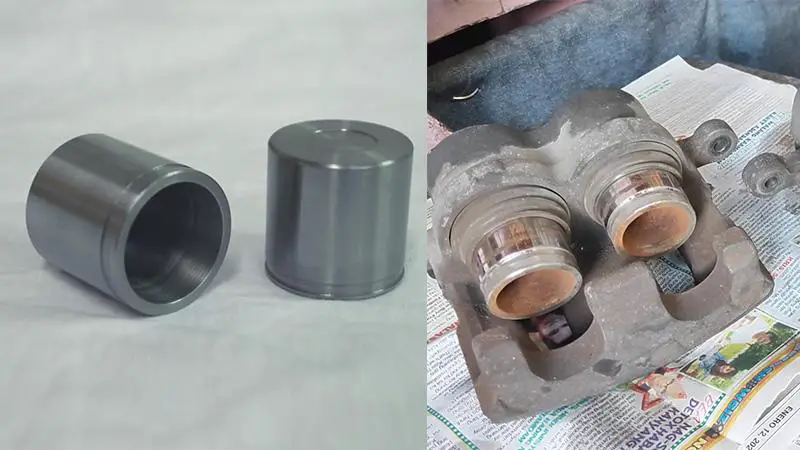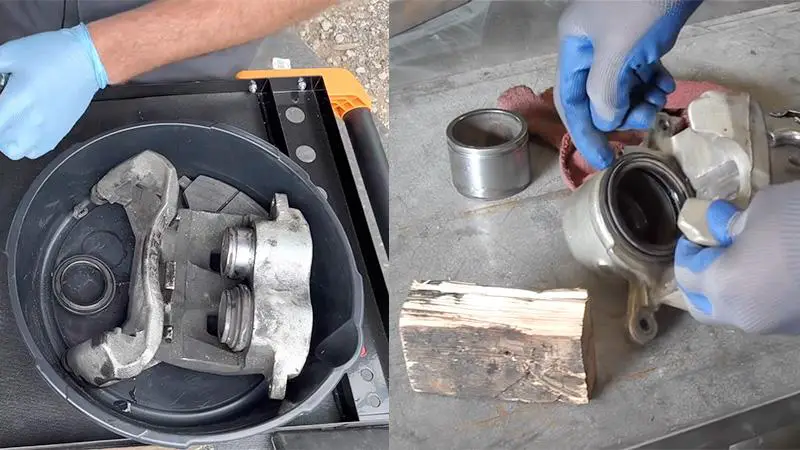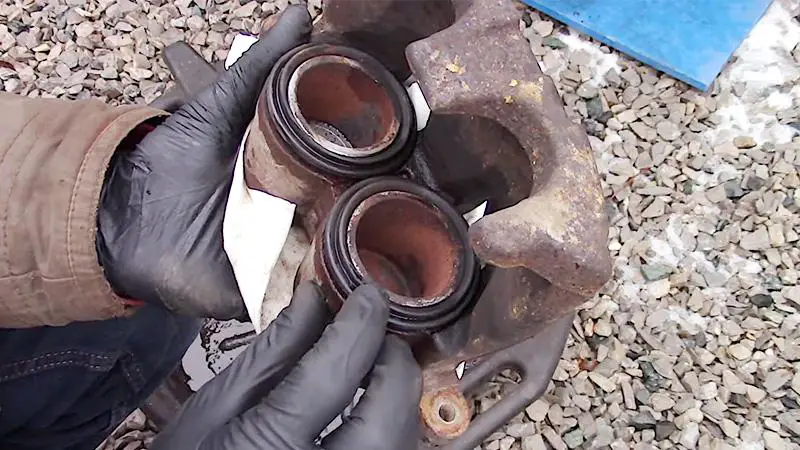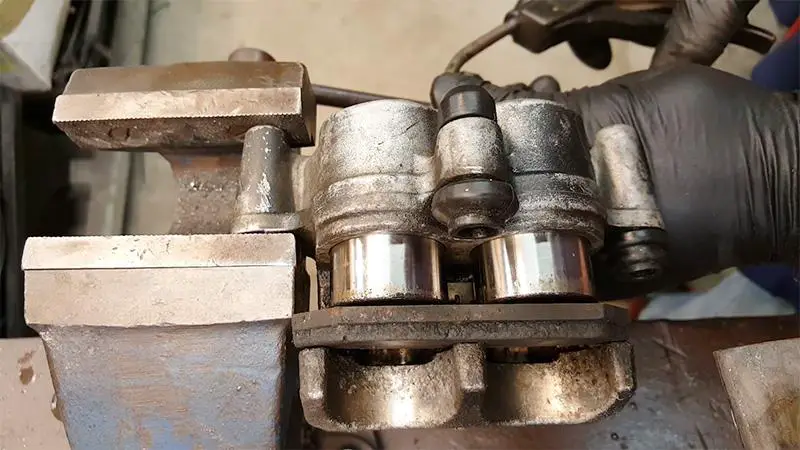Phenolic brake pistons are made of a type of plastic that has been reinforced with a phenolic resin. This type of brake piston is typically used in racing applications because it is lighter and has a lower thermal conductivity than steel brake pistons.
This means that it can help to reduce brake fade or the loss of braking power that can occur when the brake caliper and brake rotor get too hot. On the other hand, steel brake pistons are made of steel and are more commonly used in everyday vehicles.
Steel brake pistons are typically heavier and have a higher thermal conductivity than phenolic brake pistons, but they are also more durable and less prone to failure.
In general, the choice between a phenolic brake piston and a steel brake piston will depend on the specific requirements of your vehicle and your driving style.
If you are looking for a lightweight brake piston that can help to reduce brake fade, a phenolic brake piston may be a good choice. A steel brake piston may be a better option if you are looking for a strong and durable brake piston.

What Is The Difference Between Phenolic Piston And Metal Piston?
Is there a difference between the brake caliper pistons made of steel and plastic (phenolic resin)? It’s actually phenolic resin that’s used in plastic. Compared to steel brake caliper pistons, this high strength manufactured material has several advantages. Corrosion resistance is one of the advantages.
Neither water nor salt will react with the material, nor will it rust. It is possible, however, to damage the piston over time if the brake fluid is acidic. In addition, heat resistance is another advantage. Compared to steel pistons, phenolic pistons will not transfer as much heat to the brake fluid.
Engineers consider the piston material and brake pad when designing the brake system. There is a package of 4 components: the piston, the shim, the backing plate, and the friction material.
Replacement calipers must have phenolic pistons if the originals had phenolic pistons. If your replacement has a steel piston rather than a phenolic piston, return it. A damaged piston boot can cause a phenolic or steel piston to fail.
When the brakes are applied and released, corrosion or dirt caked on the piston surface will scrub back and forth on the piston bore seal if the boot is missing, torn, or not properly seated on the caliper or piston.
The seal will no longer hold pressure within a short time, and brake fluid will leak from the caliper. The caliper pistons can be prevented from being warmed and vibrated by shims.
Understanding Phenolic Resin Brake Caliper Pistons

Since phenolic resin reduces heat transfer, eliminates rust, and reduces weight in calipers, it has been used to replace steel pistons for over 40 years. Steel brake pistons can corrode, causing leaks and transferring heat from the brake pad to the brake fluid with little resistance.
Phenolic resin has a high density and is lightweight, acting as an insulator to prevent heat from reaching the brake fluid and caliper body. Stopping efficiency and safety is increased by reducing the overall temperature of the brake system.
Even though Phenolic resin resists corrosion and extreme temperatures, it can deteriorate over time, causing it to become brittle.
Without destroying the piston, it is impossible to see micro-cracks in its structure. Every test that is conducted results in a failure because there is no way to test internal integrity non-destructively.
Caution: Do Not Use Reused Phenolic Pistons
It is never a good idea to reuse or reclaim used phenolic pistons as they can cause premature failure of brake calipers. Pistons are one of the most important components of your brake caliper. The brake pad and brake rotor need to be forced into contact to stop your vehicle.
What Are The Reasons Why Phenolic Pistons Should Not Be Reused?

Heat and stress cracking may occur over time in phenolic pistons, despite their high strength and capability to withstand extreme pressures and temperatures.
It is extremely difficult to identify any heat damage or stress cracking without breaking down the phenolic piston itself, which renders it useless.
Phenolic Piston Failures:
Several things may occur in the event of internal or external damage to a phenolic piston.
- Wear on uneven brake pads
- When exposed to excessive heat, phenolic pistons may break down due to damage to the heat shield.
- The loss of pressure caused by a cracked piston can result in a complete failure of the brakes.
What Lasts Longer with Brake Caliper Pistons, Phenolic or Metal?

It is difficult to say which type of brake caliper piston will last longer, as it can depend on various factors, such as the material quality, the driving conditions, and the maintenance of the brake system.
There are phenolic and metal alternatives when it comes to brake caliper pistons. Despite their advantages, phenolic and plastic have limitations. Metal brake pistons are typically more durable and less prone to failure than phenolic pistons.
However, phenolic brake pistons may last longer in certain situations, such as racing applications where the brakes are subjected to extreme heat. Phenolic is great for everyday use, but plastic cannot withstand excessive loads.
A heat-treated plastic is used to make them, and they provide great performance. Their corrosion resistance is also much better than metal pistons, and they provide better fuel economy at a lower cost.
The phenolic ones are great for everyday driving. However, for hardcore racing, you should get the metal ones, which last longer and are stronger. In the long run, they also improve the performance of racing cars.
It is best to consult with a mechanic or brake specialist to determine which type of brake caliper piston will be best for your vehicle and driving conditions.
Final Tips
Compared to phenolic, metal brake discs have the disadvantage of transferring heat to your brake fluid.
It is also possible that someday, due to all the moisture the fluid absorbs, it will rust internally if you don’t change the fluid. It is not a problem with phenolic, but they are more prone to cracking.
Typically, when you change brake pads, you have to replace the entire caliper, so the phenolic will last through the next job if you do this.
